Regional Studies, Sudan
CIRS Lunch Talk: Darfur's Role in Sudan's Ongoing Power Struggle
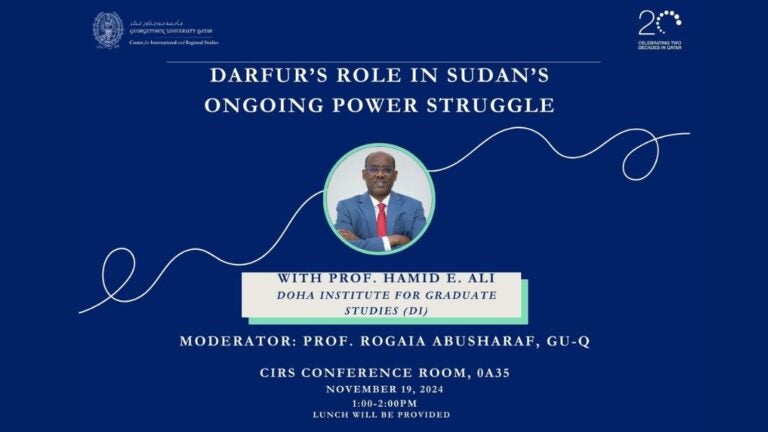
On November 19, 2024, the CIRS Lunch Talk dove into “Darfur’s Role in Sudan’s Ongoing Power Struggle” with Dr. Hamid E. Ali, a Professor of Economics and Public Policy at the Doha Institute for Graduate Studies, and Professor Rogaia Abusharaf, Professor of Anthropology at Georgetown University in Qatar. Professor Ali pushed back against the common belief that Darfur’s conflicts are separate from Sudan’s bigger problems. Instead, he highlighted how Darfur is actually at the heart of Sudan’s identity and political struggles. When discussing Sudan’s difficult history, which includes 17 coups since the country became independent, he criticized how political leaders have misused democracy, treating it just as a way to grab power while ignoring the real changes needed in education, the economy, and society. Professor Ali explained that the current problems with the Rapid Support Forces (RSF) aren’t just random events but are connected to these deeper issues in Sudan’s political system. He was especially critical of looking to Western countries for solutions, saying this approach hasn’t worked and isn’t the right path forward. Instead, he pointed to Sudan’s younger generation as a source of real hope, noting how young people are trying to move beyond the old divisions based on tribes and colonial history that have held the country back. While there are voices on social media that talk about the separation of Darfur from Sudan, this is not a majority opinion. Professor Ali stressed that Darfur needs to be properly included as part of Sudan, not pushed away or treated as less important. The discussion also looked at how past colonial rule and outside interference have affected Sudan, suggesting that these influences have often made things worse rather than better. Professor Ali called for a new kind of leadership that puts the country’s needs before personal gain, along with major improvements in education. He said Sudan needs to build a new vision for itself that brings people together instead of dividing them based on where they’re from or what group they belong to. To achieve real peace and development, he argued, Sudan needs to find solutions that come from its own people and communities, with Darfur playing a key role in this process. Professor Ali ended with a message of cautious hope, suggesting that while Sudan faces serious challenges, there’s a path forward if the country can work together and make the deep changes needed, rather than just dealing with surface-level problems. This change needs to start from within Sudan itself, with all regions and communities, including Darfur, working together to build a better future.
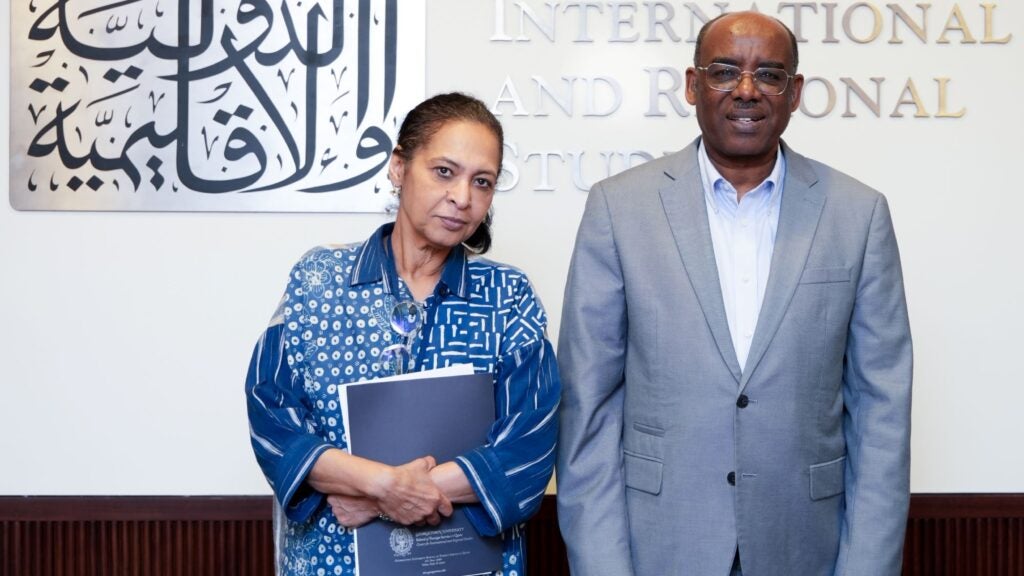
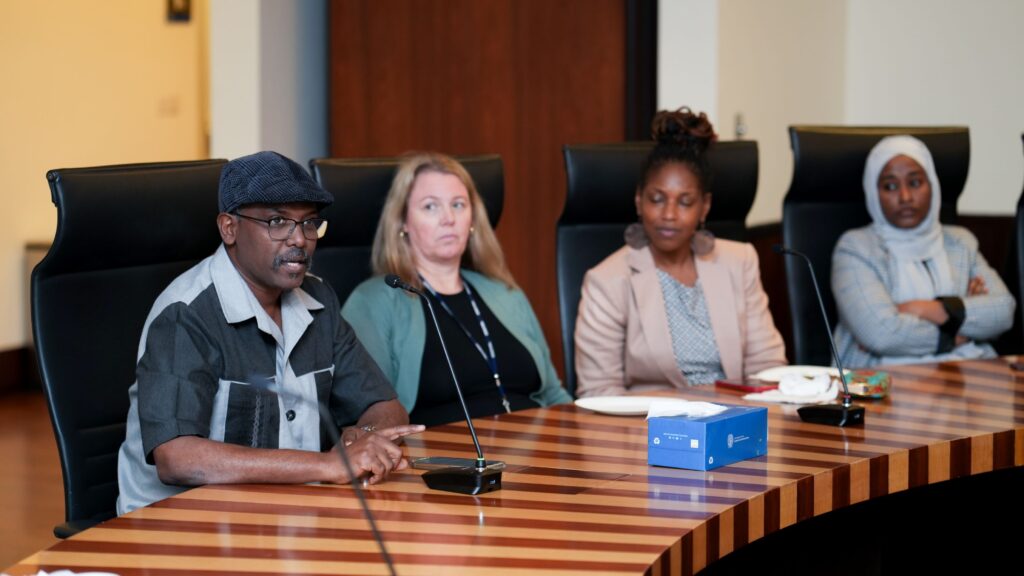
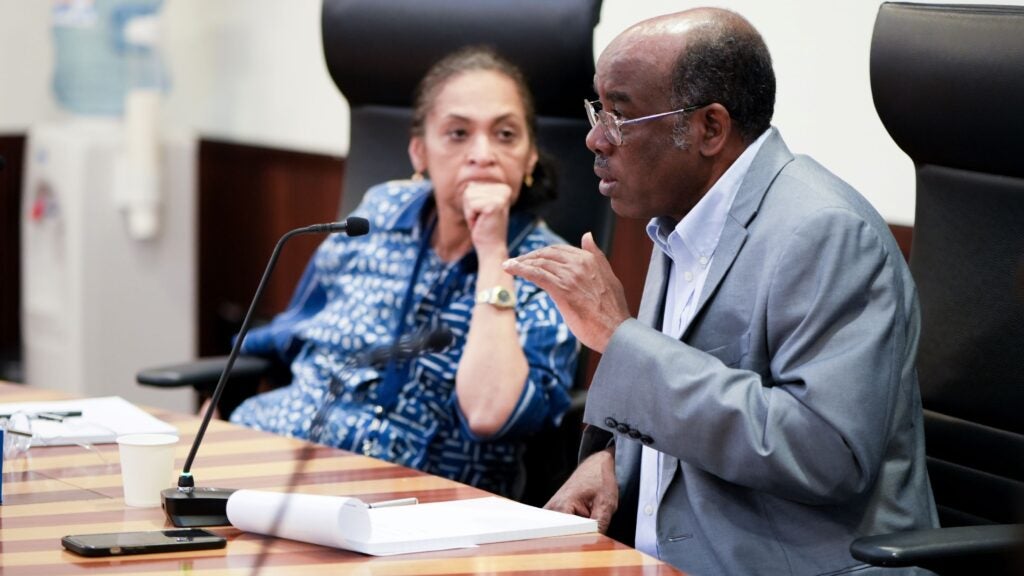
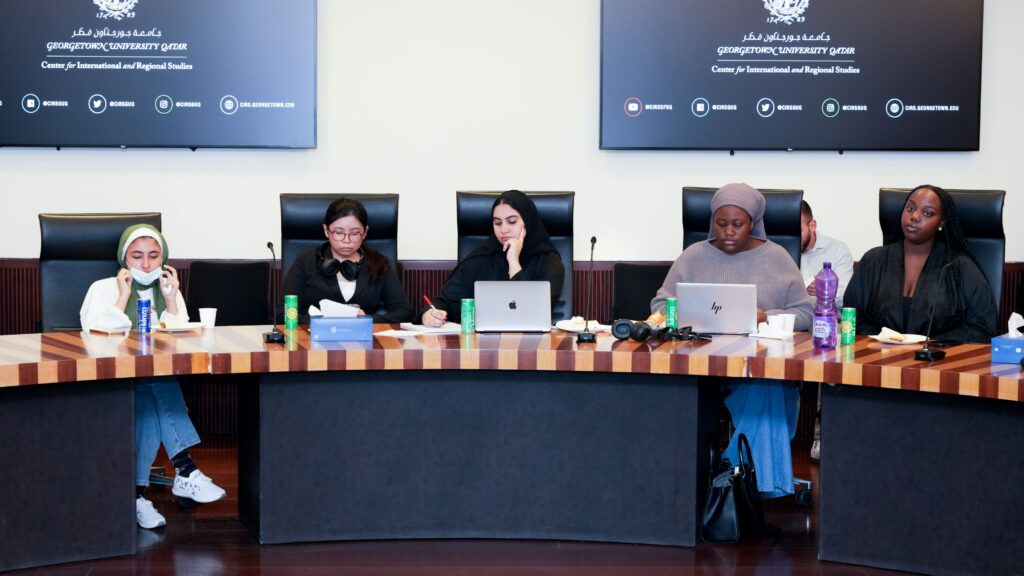
Speaker: Hamid E. Ali is a Professor of Economics and Public Policy at the Doha Institute for Graduate Studies (DI) and served as the Dean of the School of Economics, Administration, and Public Policy from 2020 to 2023. He also held a research position at the US Government Accountability Office (GAO), where he substantially contributed to several reports for US congressional committees. He has been a distinguished invitee at forums hosted by the US Institute for Peace, the US State Department, and Chatham House. Ali has teaching experience from institutions like Texas State University and Southern Methodist University. He is a member of the Task Force of the UN Department of Economic and Social Affairs (UN DESA)/ IASIA and the IASIA Board of Management. He previously served as the President of the Association of Middle Eastern Public Policy and Administration. Currently, he is the Chair of the International Commission on the Accreditation of Public Administration and Training Programs (ICAPA) and is an active member of the NASPAA Diversity and Social Equality Committee. Additionally, Hamid participates in the College Board and the Public Policy Leaders’ group for the International Public Policy Association (IPPA). He published in international journals including Public Administration Review, Peace Research, Food Policy, Defence and Peace Economics
Moderator: Rogaia Abusharaf, Georgetown University in Qatar
Article written by CIRS Research Assistant, Haala Qamar (Class of ’26)